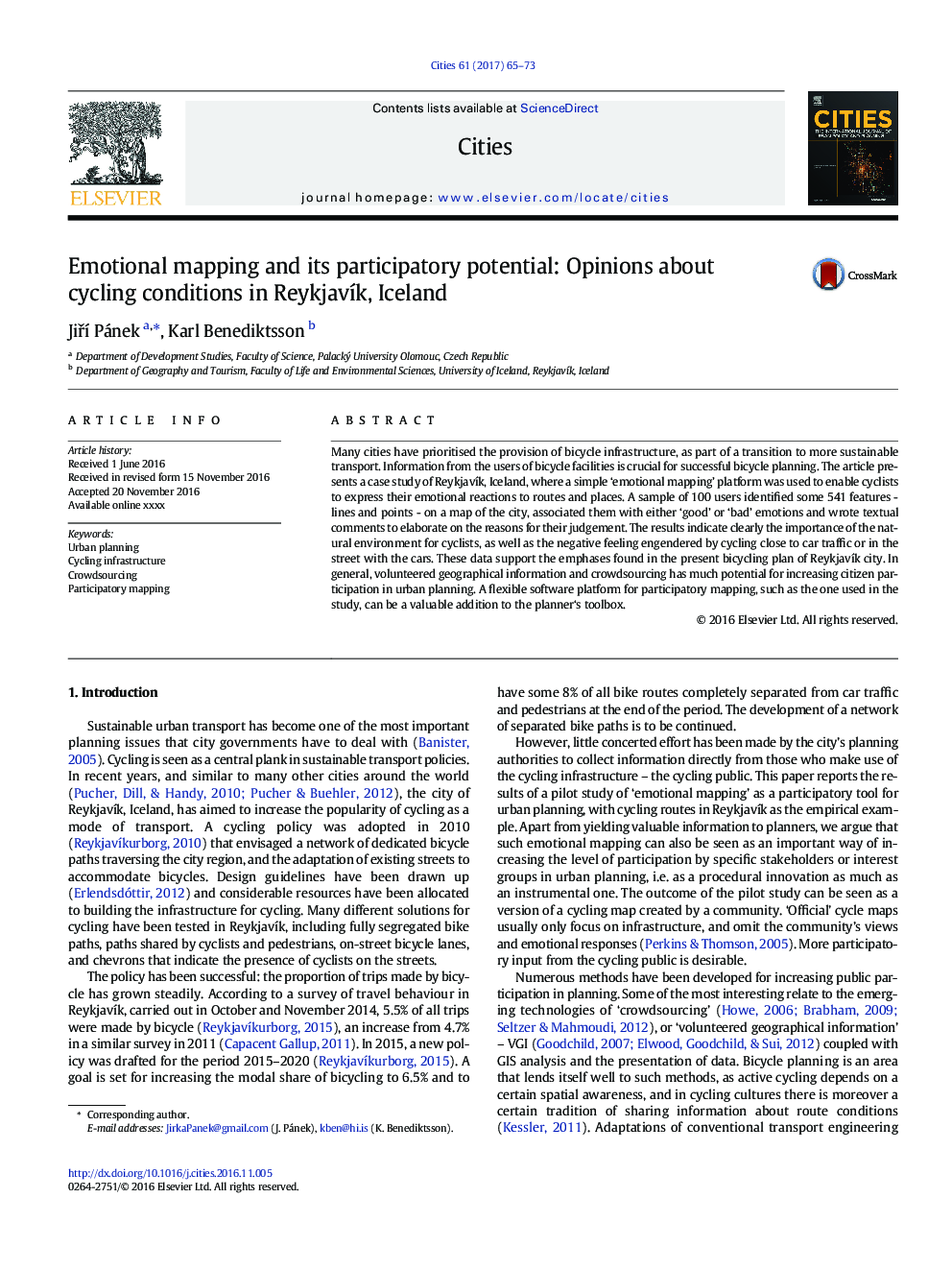| Article ID | Journal | Published Year | Pages | File Type |
|---|---|---|---|---|
| 5108103 | Cities | 2017 | 9 Pages |
Abstract
Many cities have prioritised the provision of bicycle infrastructure, as part of a transition to more sustainable transport. Information from the users of bicycle facilities is crucial for successful bicycle planning. The article presents a case study of ReykjavÃk, Iceland, where a simple 'emotional mapping' platform was used to enable cyclists to express their emotional reactions to routes and places. A sample of 100 users identified some 541 features - lines and points - on a map of the city, associated them with either 'good' or 'bad' emotions and wrote textual comments to elaborate on the reasons for their judgement. The results indicate clearly the importance of the natural environment for cyclists, as well as the negative feeling engendered by cycling close to car traffic or in the street with the cars. These data support the emphases found in the present bicycling plan of ReykjavÃk city. In general, volunteered geographical information and crowdsourcing has much potential for increasing citizen participation in urban planning. A flexible software platform for participatory mapping, such as the one used in the study, can be a valuable addition to the planner's toolbox.
Related Topics
Social Sciences and Humanities
Business, Management and Accounting
Tourism, Leisure and Hospitality Management
Authors
JiÅÃ Pánek, Karl Benediktsson,
